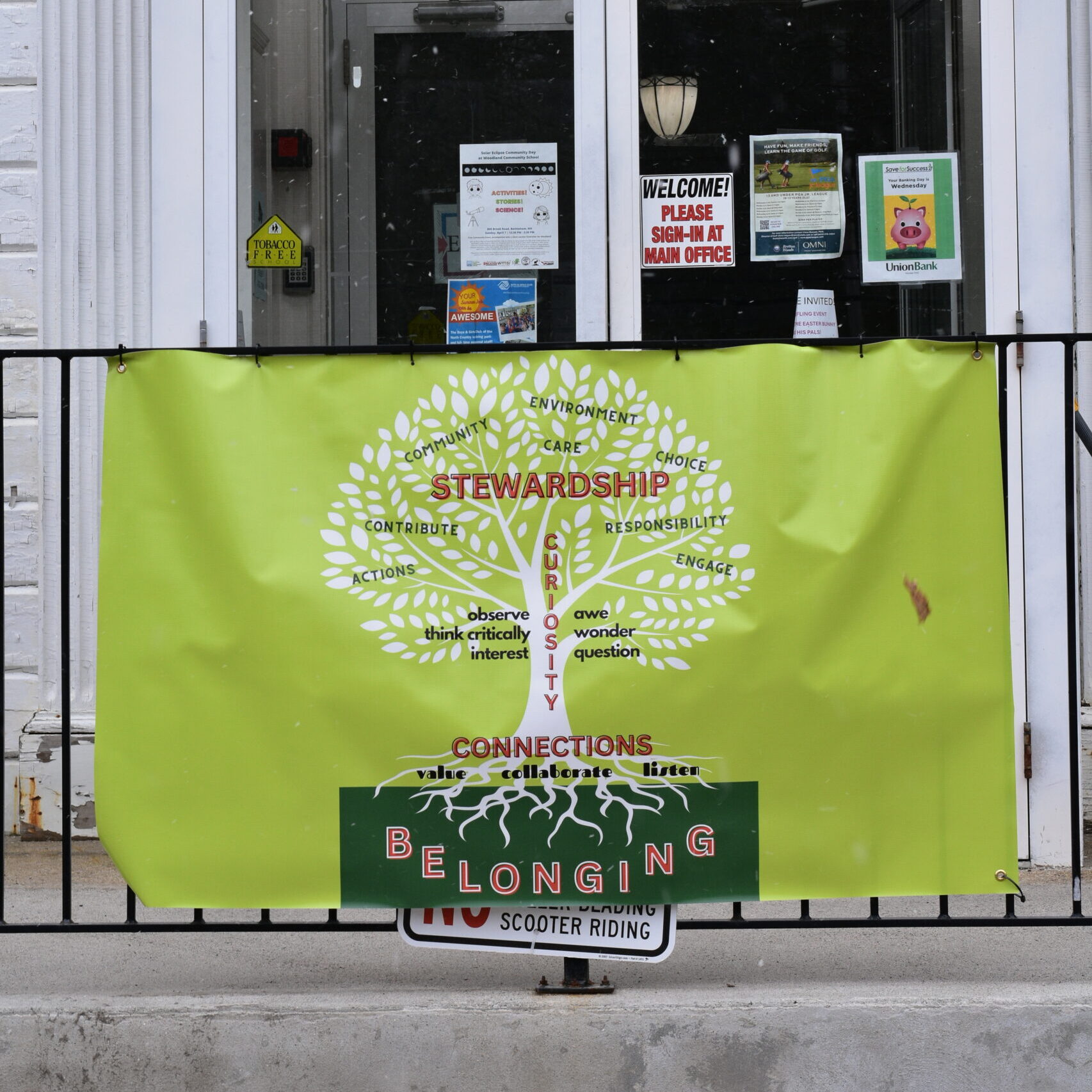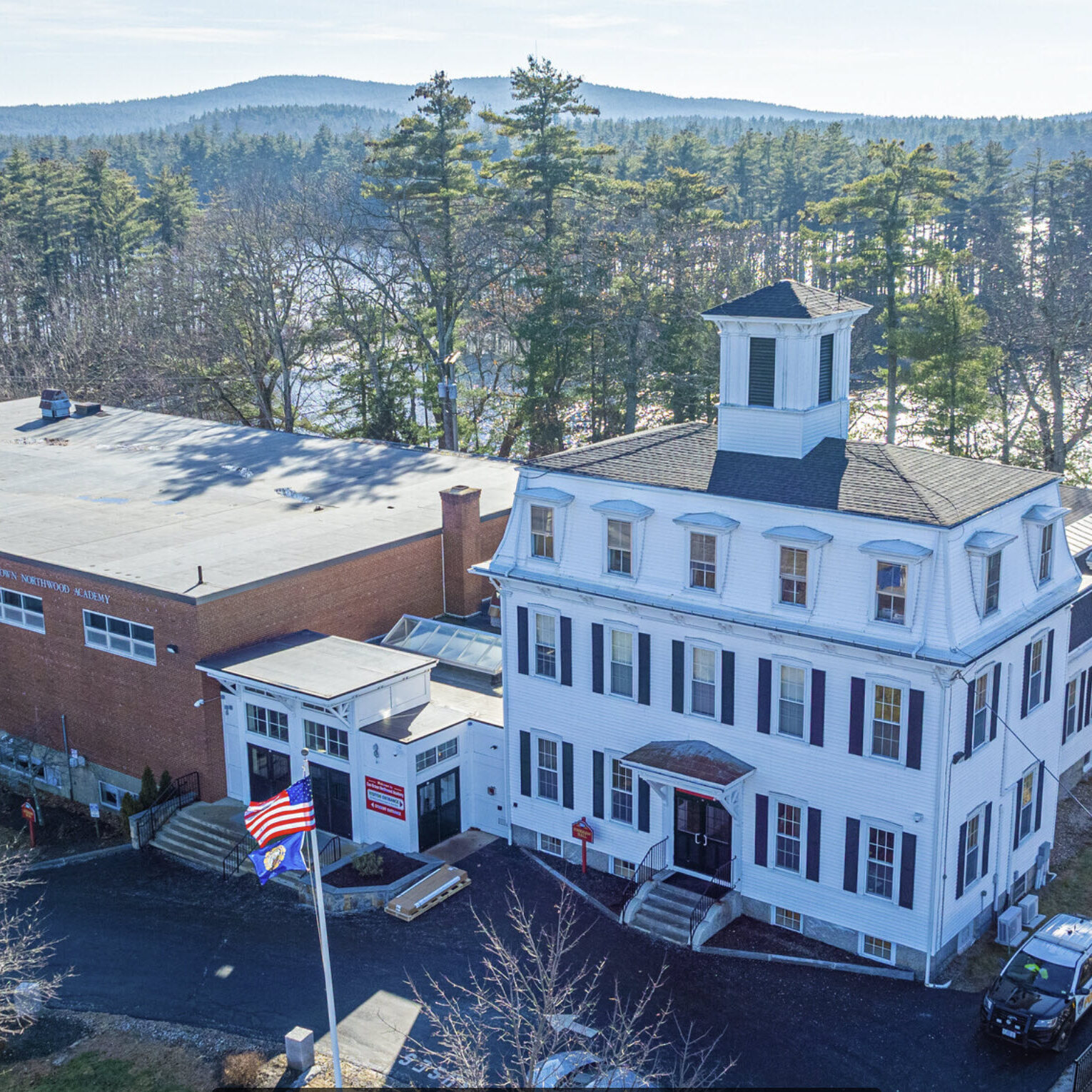
Projects Inspiring Change
Institutionalizing Food Waste Diversion and food Recovery
Hollis Elementary
Hollis Primary School (K-3) is located in Hollis NH has a student body of 377 students. HPS has demonstrated with a WWF (World Nature Fund) grant from UpliftNH how you can institutionalize and integrate food waste diversion and food recovery to make it apart of the school culture. The prgram is lead by 3rd grade enviromental educator, Tara Happy.
Tara uses a “student becomes the teacher” approach to get her students to take ownership of their work. Each week, different HPS students as young as 8 yrs old rotate to serve as rangers where they assist fellow students seperate their food waste from general trash and as well as count uneaten, edible food.
Learn MoreDespite sustainability being a big word, Tara’s young students are capable of understanding the concept of living sustainably and the responsibility they have to take care of the world they live in. Many of the lessons focus on reducing what is used and lessening our impact on the environment. HPS also repurposes, composts, and recycles what they can. They students truly grasp the idea that small actions, like composting a banana peel or sharing an unopened applesauce cup, add up and make a difference.
During the 2022/2023 school year, Tara and her students measured how much food waste was diverted from the landfill and how much uneaten food they were able to recover to give to those in need.
- During that year, over 10,000+ lbs total was diverted and saved from the landfill
- 7000+ lbs was food waste and diverted
- 2000+ lbs was milk waste was diverted
- 500+ lbs of the waste was fruit and veggies and composted out back of the school
- 620 lbs were saved as uneaten / HPS students saved and counted over 5610 items ( ie…yogurt, granola bags, cheese sticks) that resulted in $1,339 of savings
- The food is shared with students, afterschool programs, local food pantries, and the End 68 Hours of Hunger program
- 17,038 bottles of water using the schools refillable water station count
Positive impacts have been noticed with all HPS students, staff, and parent volunteers for this project. Everyone is excited about the elimination of unnecessary waste and even more excited with the rescue and donation of the still good food to those in need.
Tara is NH’s 2022 Enviromental Educator of the year. This August she traveled to Washington DC to receive the 2024 prestigious EPA’s Presidential Innovation Award for Environmental Educators for her work in using the outdoors to bring out a student’s natural curiosity and fighting school food waste. She aslo stopped by the WWF office to tour the DC office and sat down for an interview to talk about her great work.
show less



UNDERSTANDING HOW FOOD IS GROWN LEADS TO LESS WASTE
Bethlehem Elementary
Bethlehem Elementary is located in the North Country of Bethlehem NH and has a student body of 151 students in K-6. The school used a grant from Uplift NH to build upon it 3 yrs of food waste diversion and composting practices.The school has a garden club and gets its passion about food waste from paralegal and club leader Carole Bays. The club and the school’s garden teach the children how food is created as well as the individual and collective impact they have on creating food waste. The students learn about growing food and the challenges that come with planting and having a successful outcome. As a result, the students gain an appreciation for the process of growing food and why it’s important not to waste it.
Learn MoreThe students are impacted because they realized how they could reduce their own footprint and how food waste can be turned into compost and be re-used as opposed to going to landfills. That impact was evident during Food Waste Prevention Week in early April where student posters were created in the cafeteria that talked about ways in which we can reduce food waste. The week culminated with students engaging in activities including a group of sixth graders addressing their fellow students to take inventory, create meal plans and explore use of surplus food to keep it from being thrown out
More about what schools in the North Country are doing with their food waste is featured in an article from the Littleton Courier (page A5) .
Show LessREMOVING PLASTIC FROM THE SCHOOL CAFETERIA
Coe-Brown Northwood Academy
Coe-Brown Academy has a student body of 660 students in grades 9-12 and is located in Northwood NH. Although the initial purpose of their WWF grant from Uplift NH was to use it for food waste diversion, there is currently a notable portion being allocated for the purpose of reducing the amount of single use plastic in their school. The program has been a huge success so far. All single use utensils have been discontinued and the students have embraced the change.
Learn MoreOver the 2024 winter, the school’s Young Environmental Activist group lead by Jill Forward, Dean of Science, worked with the schools head caterer to determine what was needed to provide a plastic free enviroment. The list included 600 knives, spoons, and forks, 5 bussing bins, 5 bussing drains bins, 4 shelving units, 2 flatware baskets, 3 flatware dish rack and llaminated, color signs to hang near all the new recycling bins around the cafeteria.
The students have been great at adapting to the new system and placing the dirty utensils in the appropriate locations. Students monitor the trash cans, to the best of their ability, to watch for silverware being thrown away. In addition, many students have been bringing their own silverware in their lunch boxes and have been talking about other ways to reduce their plastic consumption at school , at home and in the community.
This project has been a great experience for the students, teachers, custodians, and kitchen staff to show that obstacles can be overcome and that every individual can make a difference. It has drastically reduced the amount of plastic that their school community uses and they are enthusiastic about the potential to spread their experience into the surrounding towns and school systems.
Show Less



Helping schools in the North Country lEARN ABOUT CIRCULARITY
Meadowstone Farm
Meadowstone Farm is a small diverse farm located in Bethlehem NH. Meadowstone serves a cornstone to the community with a robust CSA pogram and availability of its fresh produce in surronding retailers like the Littleton Coop. The farm’s owner, Tim Wennich and his staff believe strongly in cycles and circurality in feeding the animals, using their manure as compost and using compost to help grow his crops.
Learn MoreIn addition to growing fresh fruits, vegetables and flowers,Tim has invested in composting infrastructure to process farm and food waste from local business and neighboring schools. Meadowstone farm is in close proximity to four schools in the North Country that service K-12 including Bethlehem Landaff, Lafeyette Elementary and the Profile School. Each week , food waste is picked up and taken to the farm where it goes through a natural process of being first feed to the animals and then mixed in a tumbler with browns and greens where it turned into compost.
Meadowstone is farm for the future as it practices fundamental and modern techniques of farming including a complete animal-plant–soil nutrition cycle where Tim and his staff can observe the infinite, natural, circular relationships on the farm. It also practices a “beyond organic” approach that lets the customer weigh in as to quality of the output. The farm is very accessible whether its picking out your own flowers and blueberries to going to the onpremise farm stand to buy produce grown directly from the farm
Show Less